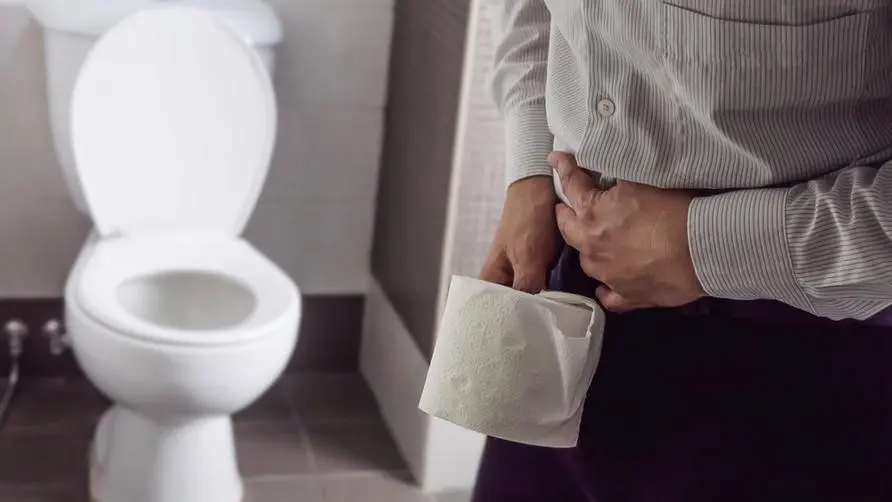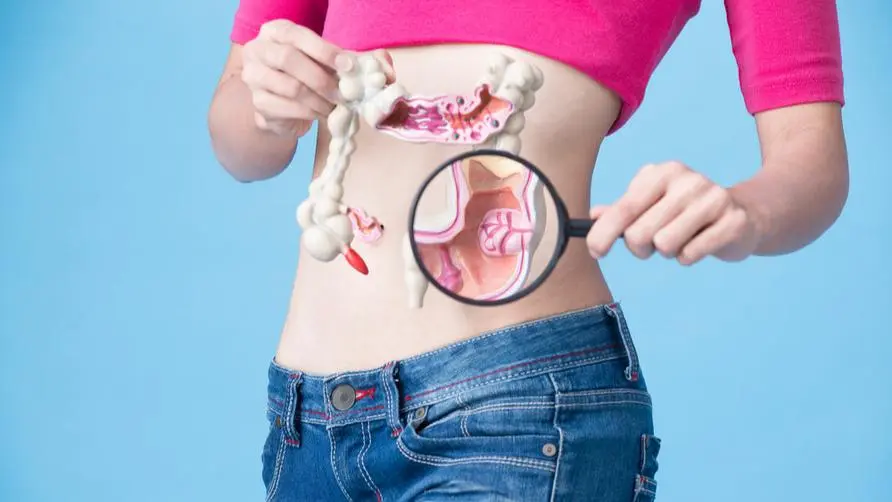Rushing to the toilet may not be a symptom of irritable bowel syndrome! Doctor: 3 Symptoms to Watch out for "Inflammatory Bowel Disease"

Rushing to the bathroom may not be a symptom of irritable bowel syndrome! Doctor: Pay attention to inflammatory bowel disease
Do office workers rush to the toilet when they get nervous? Many young people have been diagnosed with “irritable bowel syndrome” as a result. Dr. Li Boxian, an associate professor in the Department of Gastroenterology and Hepatobiliary Medicine at Linkou Chang Gung Memorial Hospital, said in an interview that the prevalence rate of irritable bowel syndrome in Taiwan is estimated to be as high as 20%-25%, which is quite high. Common intestinal problems. If the symptoms do not improve after treatment and warning symptoms appear, you should pay attention to whether it is caused by other intestinal diseases.
Dr. Li Boxian pointed out that irritable bowel syndrome is a problem for many young people. When diagnosing, it is necessary to exclude other organic diseases, comply with Rome IV regulations and have symptoms lasting for 3 months. Since the “brain-gut axis” is intertwined, irritable bowel syndrome is easily affected by emotions, stress, and diet. Treatment and care must take into account drug treatment, mental adjustment, and avoidance of irritating diets in order to interrupt the vicious interaction of the brain-gut axis. circulation, effectively relieving irritable bowel syndrome.
However, many cases of irritable bowel syndrome initially diagnosed may be caused by other intestinal diseases. Dr. Li Boxian said that if people aged 20 to 40 have abnormal bowel movements and gastrointestinal symptoms, they should also pay attention to the possibility of “inflammatory bowel disease.” Although both can cause diarrhea and stomach pain, irritable bowel syndrome does not cause bloody stools, anemia, or weight loss. Once you have the above three warning symptoms, you should consider the possibility of inflammatory bowel disease.
Inflammatory bowel disease increases 6 times in 10 years! 3 warning symptoms to watch out for
Dr. Li Boxian reminded that the prevalence rate of inflammatory bowel disease has increased nearly 6 times in the past 10 years, which is considered to be related to Westernized diet, food additives, changes in the intestinal microflora ecology, etc., and those aged 20 to 40 are the ones with inflammatory bowel disease. Disease-prone groups. Many young people believe that their chances of colorectal cancer are low, so they are unwilling to undergo colonoscopy as recommended by doctors. By the time the symptoms of inflammatory bowel disease become severe, they may have caused severe intestinal ulcers, perforations, ducts, and intra-abdominal abscesses. Even colorectal cancer.
Dr. Li Boxian pointed out that in recent years, about 80% of the inflammatory bowel disease cases referred to medical centers have been diagnosed with irritable bowel syndrome. Young patients are reminded that if they have warning symptoms of bloody stools, anemia, or weight loss, they must be alert and pay attention to rule out inflammatory bowel disease.
Inflammatory bowel diseases are divided into “ulcerative colitis” and “Crohn’s disease” based on the site of invasion and mucosal changes. In addition to causing mucosal inflammation and ulcers, they can even increase the risk of cancer by 3-15%. The main treatment methods are traditional drugs, biological agents and small molecule drugs. Surgery and treatment are only used as a last resort. In recent years, foreign studies have also found that “microbiota transplantation” (FMT) can effectively relieve intestinal symptoms of ulcerative colitis and increase the chance of repairing short-term damaged mucosa.
Microbiota transplantation helps intestinal mucosal recovery? Is it also effective for irritable bowel syndrome and autism?
Today’s “Florum Microbiota Transplantation” (FMT) treatment mainly involves injecting purified healthy bacterial fluid into the intestine through a colonoscope to rebuild the patient’s healthy intestinal flora. Dr. Li Boxian explained that microflora transplantation has the potential to treat infectious diseases, adjuvant cancer treatment, autism, epilepsy, obesity, fatty liver and inflammatory bowel diseases. A recent study published in the Journal of Gastrointestinal Science found that a single microflora transplantation treatment can improve symptoms, fatigue, and quality of life of irritable bowel syndrome, and the effects can last for 3 years.
Dr. Li Boxian pointed out that according to Taiwan’s special regulations, “microflora transplantation” is currently only suitable for the treatment of refractory or recurring Clostridium difficile infections. However, in 33 clinically treated patients with inflammatory bowel disease infected by Clostridium difficile, most of the symptoms of inflammatory bowel disease were improved after receiving microflora transplantation, which is similar to the results of international studies. , looking forward to its application in the treatment of ulcerative colitis after more research evidence is available.
Dr. Li Boxian said that patients with inflammatory bowel disease are prone to infection with Clostridium difficile due to damage to the intestinal mucosa, leading to worsening of the disease. For patients who meet the indications, Clostridium difficile infection can be treated through microflora transplantation. Not only can a single treatment achieve a success rate of more than 90%, it can help repair the intestinal mucosa, and can also reduce the chance of recurrence of infection next time. The key to the quality of microflora transplantation treatment lies in the control of the “microbacteria bank” and “microbacteria treatment center”. It is also hoped that the next generation of “microbacteria capsules” will make microflora transplantation treatment more convenient and effective in the future and benefit more groups with different diseases.
Further reading:





